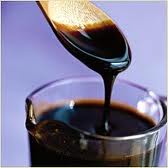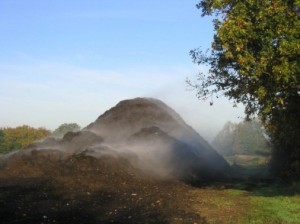Farmers and gardeners have always been on the holy grail quest for the growing savior. Growers for eons have searched for the sole silver bullet that will rid them of the insufferable onslaught of fiendish bugs, megolomaniacal weeds, and microscopic diseases. While end-all cure are fallacies, there is new (and not so new) research that molasses can bring alleviation to many dire garden situations.

Most of us grew up touting the sweet tooth benefits of this thick goodness. Now, the champion of the tastebuds can alter the way we practice our garden methods.
Check it out:
- Feeding the little guys
- Adding Science to the Soil
- Breaking the Will of Fungi, Insects and Stubborn Compost Piles
Fungi and insects of ill repute have learned to fear the sugar. Insecticides containing molasses can deter soft bodied pests like aphids. There are also reports (specifically from a company called Garden Ville) that a mixture of water and molasses will drive fire ants away as well as root knot nematodes. Vinegar fungicides containing apple cider vinegar and molasses have been known to deter bad fungi.
Finally, mountainous compost piles requiring Sherpa-esque exploration can be shrunk to size with the addition of dried molasses (made from Blackstrap molasses sprayed and dried on grain flour roughage).

-
Environmental Champion
From Natural News, there is new research by the USDA suggesting that molasses could replace the highly toxic fumigant, methyl bromide, as an herbicide. Researchers in Florida incorporated the use of molasses and poultry litter in the soil and covered the area with plastic tarps to suppress weeds and pest emergence. The end results compared evenly with the effectiveness of methyl bromide. Hopefully, this trend will catch on worldwide.

Richard Blocker says
Thanks for the info about molasses it was helpful! I’m in San Antonio so I know Malcolm Beck at Gardenville for at least 25 years he’s a world of knowledge! I’m using liquid seaweed and molasses on my tomatoes it’s good for the plant,I’m staying them weekly! I already am getting white fly on them? What I want to know does Liquid Seaweed and Molasses kill bugs? I’m determined to not have bugs on the plants this year! Especially squash bugs! What organic bug killer would you recommend using for these bugs on my tomatoes? I’ve used Palmolive soap and water on my cactus to kill squash bugs, do you think I could use this on my tomatoes? Thanks Richard Blocker
Scott Fisher says
I never knew you could do this. I have a lot of work to get done now thank you!
Colleen says
2002. I was given a receipe for creating a global environment around my garden. I remember 3 ingredients. 5L water, molasses, and a certain powder. Can remember name! Once fermented I sprayed the whole area of garden. Suddenly got the most beautiful tiny tree frogs, unique color’s, had 26 different veggies growing in small area 1.5m x 2m! Was living off my garden, with indigenous shrubs and veggies, growing happily together! Do you perhaps know of the powder, that stimulated the molasses mixture to ferment. THEN IT WAS READY! Was told by an expert, ONLY A BIO- HEALTHY GARDEN HAS TREE FROGS! MY GARDEN ONLY HAS INDIGENOUS SHRUBS TO ATTRACT BIRDS, BEES AND BUTTERFLIES! At new home was planted 2005! Colleen. South Africa!!!!
brian says
It’s hard to say for sure, but likely the powder was comprised of beneficial microbes. The molasses would feed the microbes and all together create a healthy environment. We sell a product called Great White that would fit this bill today!